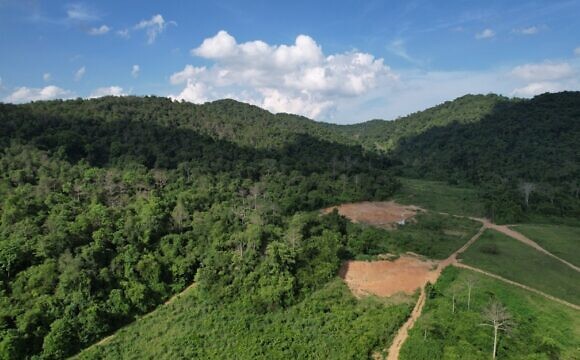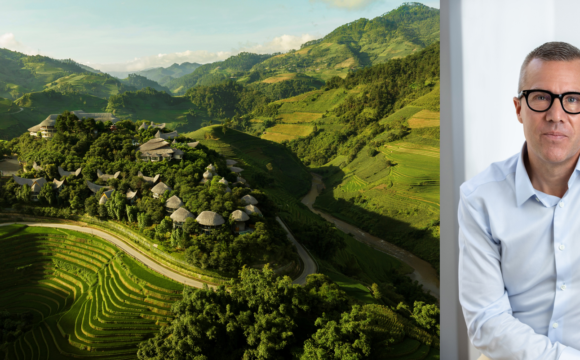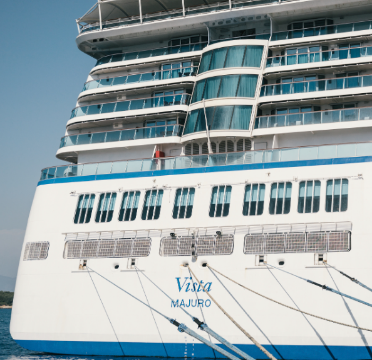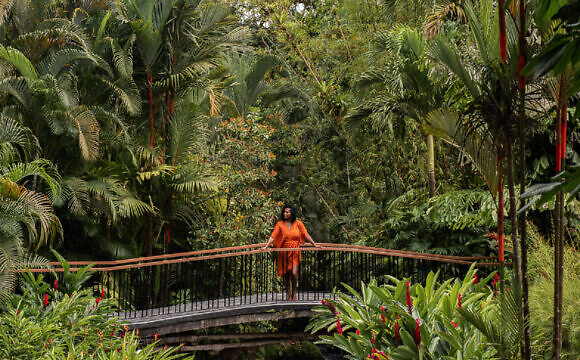PROTECTING THE MARINE ENVIRONMENT ACROSS AFRICA AND THE INDIAN OCEAN
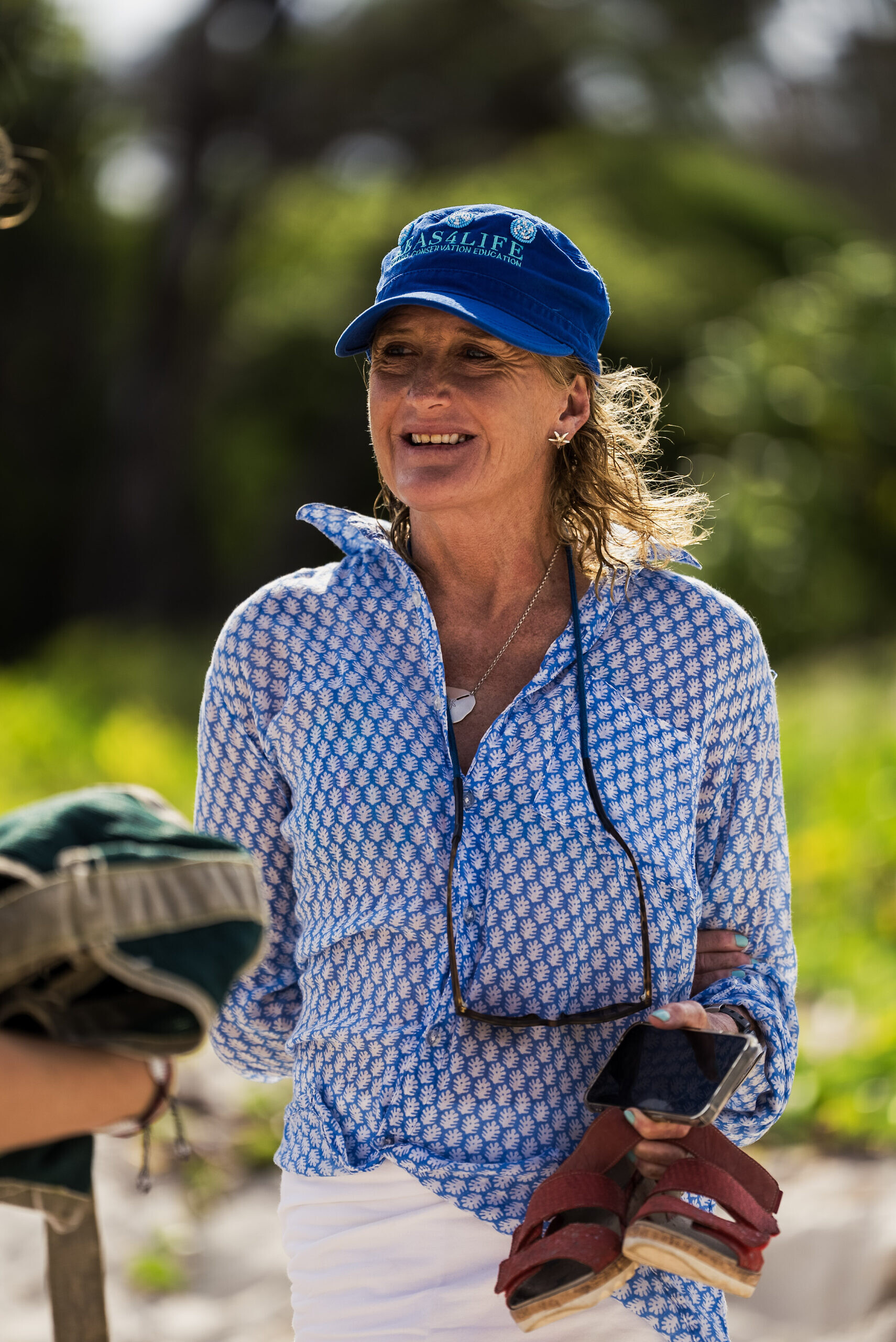
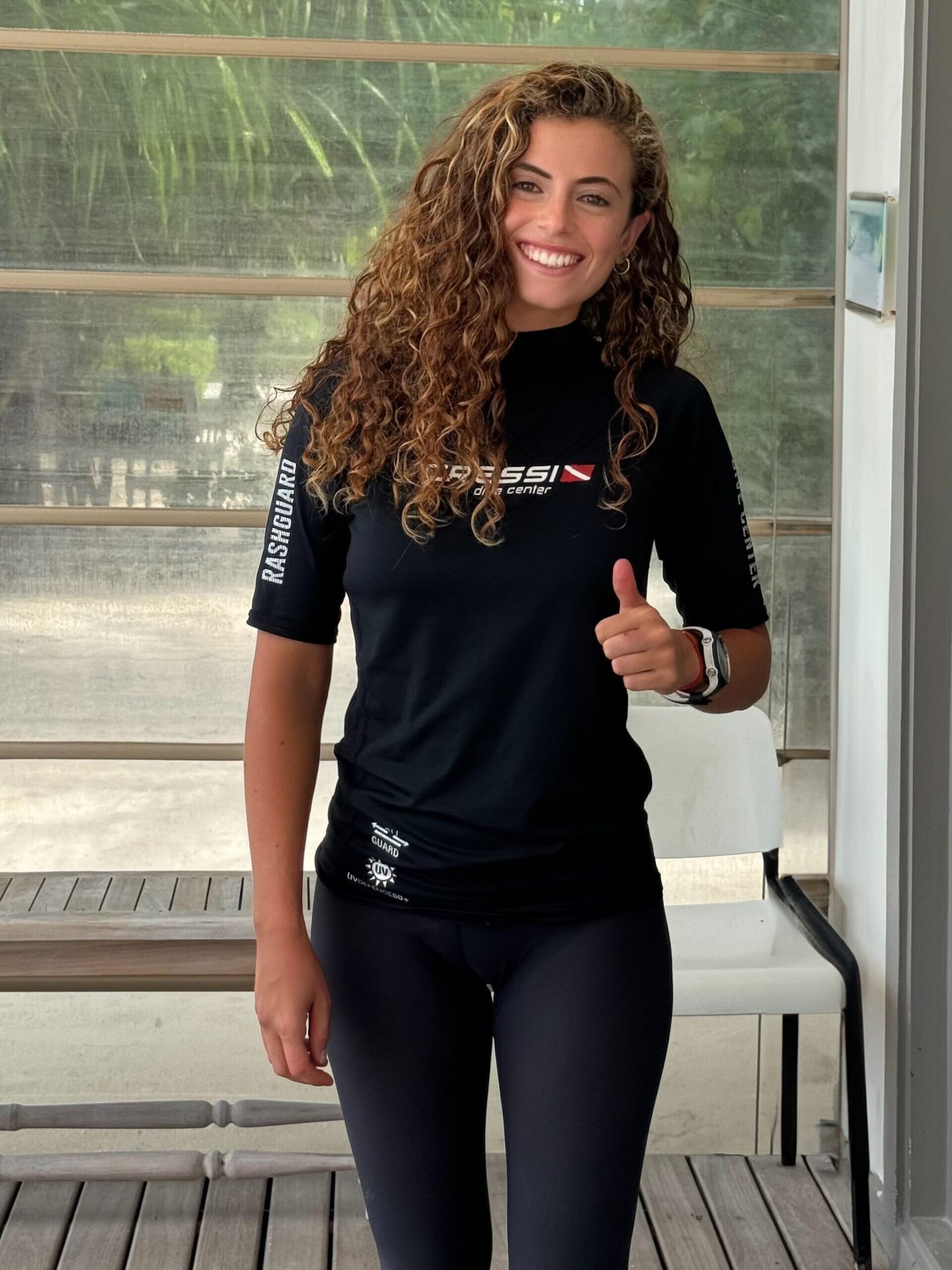
With the UN Ocean Summit taking place in Nice in a mere four weeks, Storrington Collective introduces three incredible female leaders in marine conservation – Eleanor Brighton, the Ecology and Sustainability Manager at Blue Safari Seychelles, Giulia Morello, Marine Biologist at Cora Cora Maldives, and Julie Church, Founder of Seas4Life. Each plays a vital role in protecting the ocean environment across Africa and the Indian Ocean; these three inspiring oceanic trailblazers are undertaking incredible work to help preserve and protect the marine environment for future generations.
The Indian Ocean is home to approximately one-third of the global population of marine species, contains productive and diverse ecosystems, and is imperative in absorbing greenhouse gas emissions from the atmosphere. However, the Indian Ocean is under threat from climate change, overfishing, plastic pollution, coral reef degradation, deep sea mining and sadly, more. Recognising the responsibility humankind has in protecting the marine environment, Eleanor Brighton, Guilia Morello, and Julie Church are leading the way in preserving and safeguarding aquatic ecosystems.
Eleanor Brighton – Ecology and Sustainability Manager at Blue Safari Seychelles
Elle’s fascination for the ocean began at age five, digging around rock pools in Cornwall before learning to SCUBA dive at 15, where she saw coral reefs for the first time. After moving to Southeast Asia, Elle witnessed the unbelievable diversity of the marine life in the coral triangle, but also saw the eye-opening destruction that humans are causing. This, coupled with feeling drawn to the waves, made Elle pursue the conservation of tropical marine ecosystems, an adventure she has been on for the past 11 years.
The past year has been fantastic for conservation for Blue Safari Seychelles, of which Elle has been instrumental, with key highlights being:
- The discovery of a new fish species from Alphonse Island – The Alphonse Pygmy Goby (Trimma cavicapum) was discovered, adding to the biodiversity value of the Outer Islands of Seychelles
- Being part of the publication of two scientific journal papers – The journals outline the results of the recreational angling project on Milkfish physiology and the first review of the company’s five-year multi-disciplinary study looking at spatial ecology, habitat use, and recapture rates of Giant Trevally around the Alphonse Group.
- The Alphonse Shark Project began – In collaboration with Save Our Seas Foundation and the D’Arros Research Centre Team, a 10-year study was implemented to investigate the diversity, abundance, spatial, and tropical ecology of sharks across the Amirantes Group of Outer Islands. 50-60% of sharks have disappeared since the 1950s due to the massive boom in industrial fishing, where sharks are caught as by-catch and directly targeted for their meat and fins, so this project aims to inform future policy with data and change the narrative around sharks.
“Over my career, I have loved working on remote desert islands and being able to swim with over 800 species of fish – when I’m underwater surrounded by schooling fish or finding a rare nudibranch, I have to pinch myself that this is my job! I have felt honoured that we have presented work at various conferences, including the Western Indian Ocean Marine Science Symposium and the Seychelles Marine Science Symposium, as well as helped to survey the oldest community-managed marine protected area every year in Waitabu, Fiji," enthuses Eleanor.
When asked what she would like to see changed from the Summit, Eleanor said “There needs to be a focus on plastic and solid waste pollution, particularly the damage done by Southeast Asia countries that tend to have unchecked and unsustainable development and there should be an increase in community-level education to change the perception of waste. The world needs to wake up and realise that increasing overpopulation and the creeping spread of human development and exploitation of the ocean’s resources are leading to the fifth mass extinction event – countries must act decisively to preserve disappearing wildlife! Lastly, there needs to be a massive rethink around the handover of the Chagos archipelago. Currently, the archipelago is the only true example of undisturbed coral reefs, but the Mauritius government aims to open it up to tuna fishing – this cannot happen and is something that can only be discussed at high-level meetings like the Summit – some places need to be prioritised and given to nature and with the increasing spread of humans across the world undisturbed places there are so few areas like the Chagos left".
Giulia Morello – Marine Biologist at Cora Cora Maldives
Giulia feels a deep responsibility to protect the marine ecosystem. She has a philosophy built on her personal experiences of seeing the fragility and resilience of the ocean. The ocean is a living, breathing ecosystem that regulates our climate, feeds millions of species, and supports biodiversity beyond comprehension. Giulia recognises that we are the first generation to truly understand human impact on the ocean and possibly the last with the chance to reverse the damage.
Giulia and the team at Cora Cora Maldives have made some admirable progress in conservation over the last year including:
- Coral Restoration using MARRS and Ocean Quest methodologies – In collaboration with Mars Global, coral restoration efforts have been expanded using the Mars Assisted Reef Restoration System (MARRS, developed by Mars Global) and the science of Ocean Quest. These science-backed, long-term approaches lay a foundation for more resilient reefs to be made and has resulted in Reef Stars being deployed at three active restoration sites at Cora Cora Maldives.
- Collaborating with Save the Beach Maldives and Mars Global – Through a multi-stakeholder collaboration with Save the Beach Maldives and Mars Global, Giulia and her team have extended the reach of reef restoration beyond the resort. Using collective action, scalable, long-lasting change can benefit reef restoration and the local community.
- Training as a Certified Ocean Quest Global Field Training Instructor – Giulia travelled to Malaysia to complete intensive training to become an Ocean Quest Global Field Training Instructor and a certified MARRS Field Trainer enabling her to train the local community, Cora Cora Maldives’ ‘Freedom Fighters’, and guests in coral planting, propagation, and science-based restoration.
“A truly inspiring moment in my career was when I was underwater with our team and guests when the first coral frame was installed during our multi-year collaboration with Mars Global. It wasn’t just a scientific moment, it was symbolic. It proved that marine science doesn’t belong only in labs, it can thrive at the heart of a resort – it is inclusive, interactive and deeply impactful. We can dream big, act fast, and create real, lasting change," comments Giulia.
When asked what she would like to see changed after the Summit, Giulia replied “I would like more investment to be implemented in coral restoration and coastal resilience, especially in frontline countries like the Maldives. I think mandatory sustainability education and environmental action plans should be integrated into the tourism and hospitality industries and more accessible certification programmes for young scientists and local communities should be created to ensure knowledge transfer".
https://www.coracoraresorts.com
Julie Church – CEO & Founder of Seas4Life
Julie’s love of the ocean stems from a lifelong connection to the ocean during her upbringing along the Kenyan coast, and a deep desire to conserve marine biodiversity for future generations. Julie strongly believes that education, scientific research, first-hand experiences and community-led initiatives are crucial for ocean conservation. This is emulated in Seas4Life’s work to help people not only understand the ocean but feel responsible for its future. A few examples of these initiatives and partnerships include:
- Bahari Hai, a local community conservation organisation based in Watamu, Kenya, has identified foraging/cleaning sites for green and hawksbill sea turtles, working with former turtle poachers and transforming them into valuable data collectors for sea turtle conservation. This bridges knowledge gaps while providing alternative livelihoods for those who once posed a threat to marine life. Seas4Life guests have the opportunity to explore these areas with the Bahari Hai team.
- Kitu Kiblu, based in Mafia Island, Tanzania led by their founders, Dr Jean de Villers and Ms Anne De Villiers M. Sc, hosts researchers, contributes to the global spot-pattern identification project which seeks to map whale shark migrations and movements, and provides a base for data collecting on whale sharks as very little is known about the largest fish on Earth. Not only has Kitu Kiblu confirmed there is a resident population of whale sharks off Mafia, but they also encourage interns to swim, snorkel and learn more about whale shark biology. Seas4Life experiences in Mafia, include a Kitu Kiblu-led whale shark encounter.
- Kwanini Foundation, Northern Pemba Island, Tanzania works in partnership with local communities to develop targeted sustainability programmes that benefit those who rely on the ocean for their livelihoods. The focus is on marine and terrestrial conservation, waste management, water supply, education and community development through nature, positive entrepreneurship and micro-financing. Through this, the Kwanini marine protected area was founded over a decade ago, leading to a remarkable 400% increase in biodiversity, increased awareness about the value of the coral reef ecosystem and sustainable employment for locals. Through loans and other financial models, overfishing has been reduced and communities empowered. More recently, Blue Alliance is working with PECCA (Pemba Chanel Conservation Area) to extend the marine conservation area around Pemba, which is an incredible achievement. Seas4life Pemba experiences include a privately led snorkel in the marine protected area.
- Oceans Alive, Kilifi County, Kenya, has created 12,000 hectares of protected ocean under co-management; planted 8,000 coral colonies, and supported 3,000 small-scale fishers. The co-managed area of Kuruwitu includes coral restoration and climate-smart kitchen gardens, with the aim of the model being rolled out to other areas seeking better-managed fisheries and improved livelihoods. Seas4life experiences in the Kilifi area include a wonderful visit to Kuruwitu led by Katana, one of the co-founders of Kuruwitu.
“One of the most defining moments of my career was leading a conservation and development project in the Kiunga Marine National Reserve with the Kenya Wildlife Service and WWF, adjoining the Kenya-Somalia border. The work integrated marine protection with essential community services, to ensure conservation efforts were deeply embedded in local development. I truly believe that the most effective form of marine conservation interweaves with community engagement. Another career highlight was when I founded Ocean Sole – a social enterprise that upcycles discarded flip-flops into vibrant art pieces. Seeing Ocean Sole grow into a globally recognised model bringing awareness to marine waste, employment, a new skill to creatives and trade that supports a better world, has been incredibly rewarding, and I loved seeing how sustainability and creativity can go hand-in-hand," delights Julie.
When considering what she would like to be implemented after the Ocean Summit, Julie said “I would like to see stronger private sector involvement in marine conservation to ensure industries actively contribute to ocean health rather than pursuing exploitation. I think there should be greater investment in conservation programmes and a shift towards ocean-positive investments and travel. If we create travel experiences that contribute to marine conservation rather than simply offering passive enjoyment of coastal environments, we make the ocean (not just the beach) a destination for education and stewardship, and leisure".
Seas4life has a 70:30 principle – similar to our planet (70% Ocean and 30% Land), whereby 70% of the profits go into the Seas4life Foundation to support selected research, monitoring and conservation initiatives in the Western Indian Ocean. Seas4life invests in the long-term of our blue planet.
If you would like to interview or learn more about these inspiring female leaders, please do not hesitate to contact me, and I will be delighted to arrange this for you.
Storrington Collective is a member of PRCA and a full-service public relations agency, catering exclusively to the luxury travel and hospitality sector. Comprised of an exceptionally talented team, Storrington Collective creates innovative and bespoke campaigns that deliver outstanding results for its clients across all media platforms.


